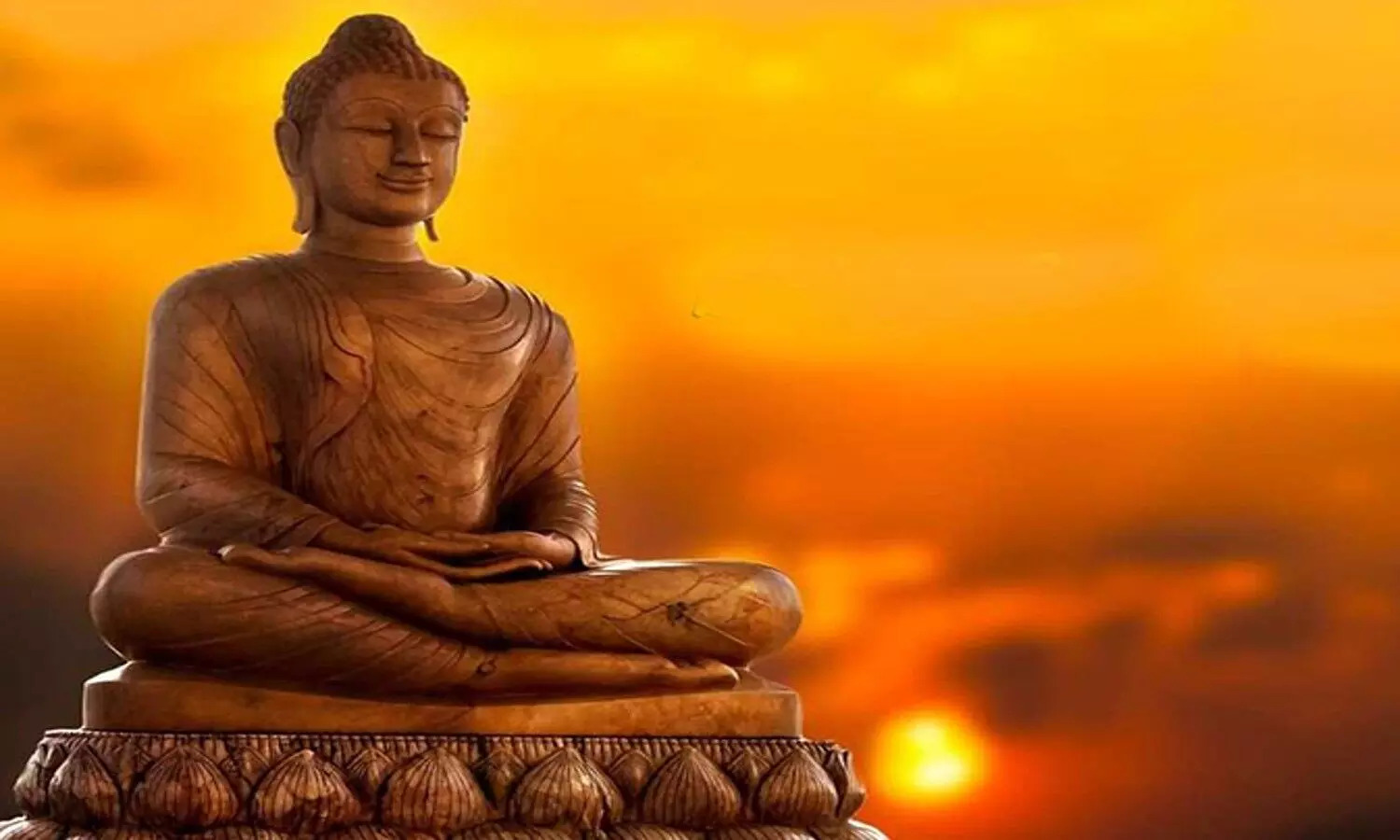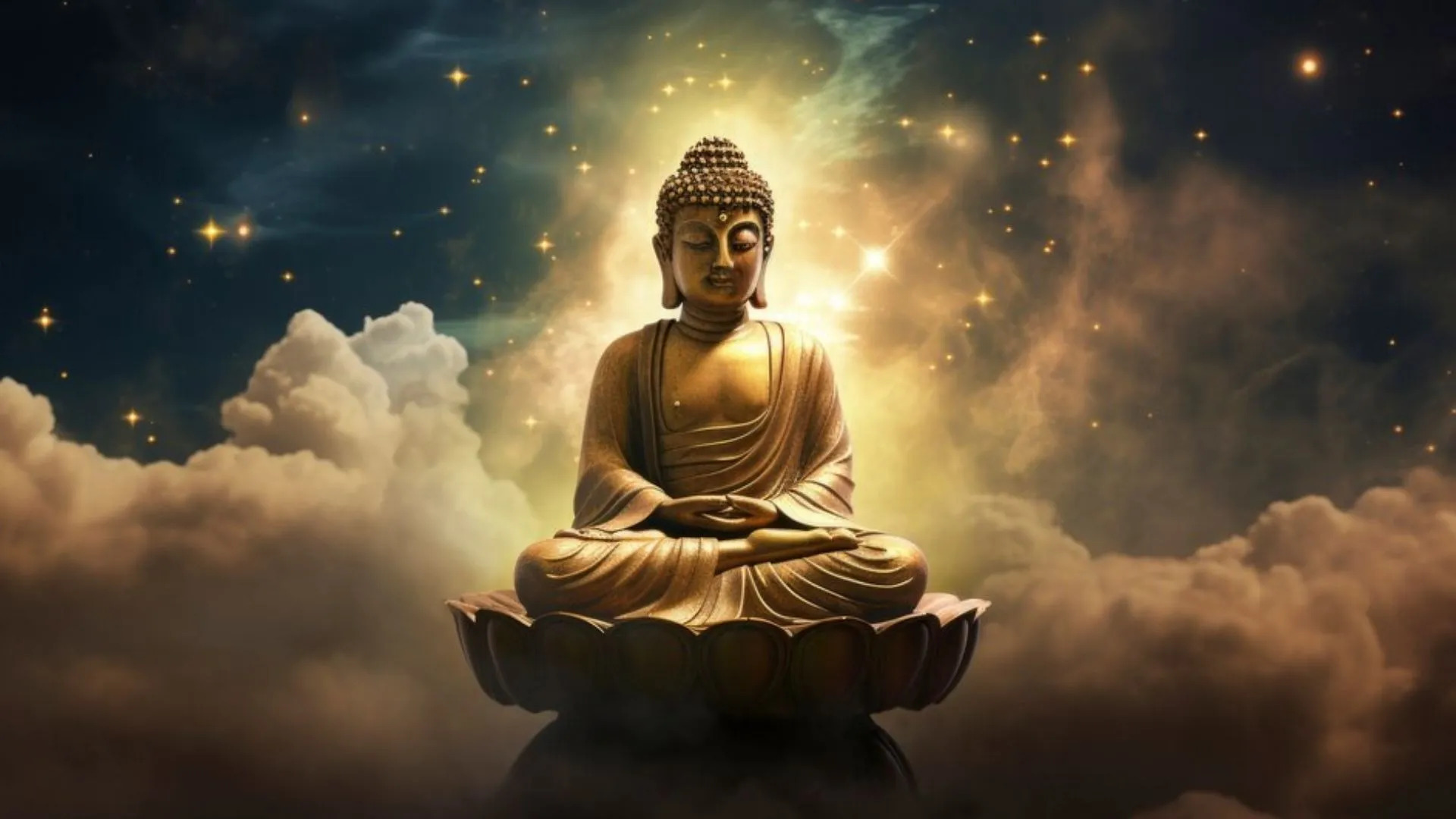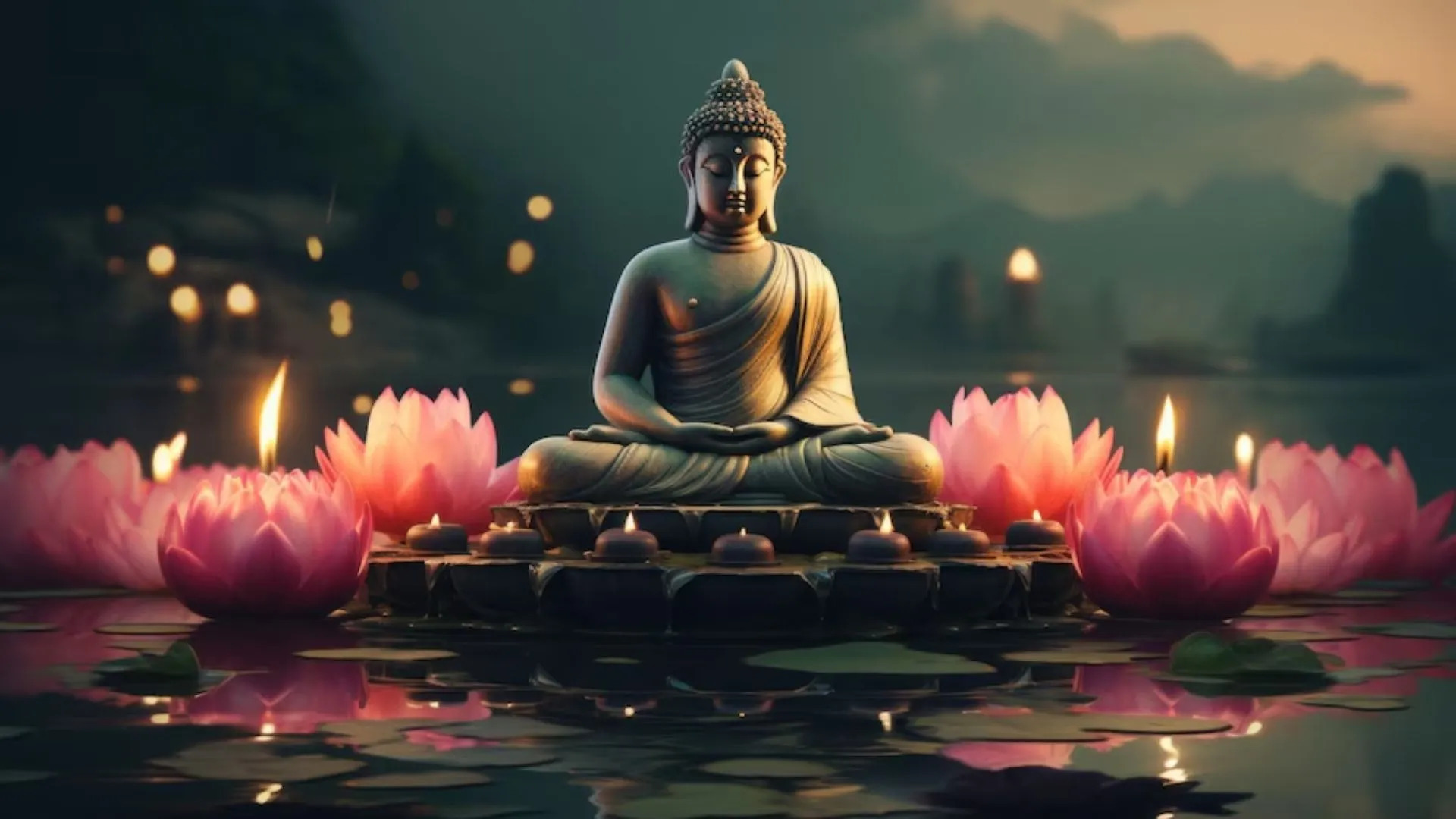Gautam Buddha is a beacon of spiritual awakening. His public welfare thinking, and deeds are timeless that have been guiding the society for ages. His birth anniversary is celebrated on Buddha Purnima, and his Nirvana Day also occurred on the day of Buddha Purnima. On this day, Gautam Buddha blossomed in his fullness; he remained engaged in the search for his own perfection, as well as the perfection of human society that became a timeless inspiration and possibility of perfection. On this Day, Buddha was born, left this world for Heavenly Abode, attained divine knowledge and salvation. Buddha Purnima is an important day not only for the followers of Buddhism, but for the entire human race. Buddha Purnima is the biggest festival day for the followers of Buddhism. A series of celebrations are organized on this day in different fashions. In different countries, celebrations are organized according to their peculiar customs and culture. For example, Sri Lankans celebrate Buddha Purnima as 'Vesak' festival, which is a corrupt form of the word 'Vaisakha'. On this day, lamps are lit in Buddhist houses, which are decorated with flowers. Buddhist followers from all over the world make pilgrimage to Bodh Gaya, a city in Bihar, and offer prayers. The Bodhi Tree is worshipped there in this city. Garlands and colourful flags are decorated on its branches. Milk and perfumed water are poured on this Holy Tree's roots. Lamps are lit around the tree. Food and clothes are donated as alms to the poor.
Mahatma Gautam Buddha was the founder of Buddhism. During his life, he always taught people the values of non-violence, love and compassion. Gautam Buddha was born in a royal family in Lumbini, Nepal in 563 BC. Mahatma Buddha is considered to be one of the most important and greatest Indian spiritual thinkers, an accomplished monk, social reformer, and a religious leader. He touched the hearts not only of influential people, but also the common people, and brought positive changes in their lives. Hence, he can be called the architect of a religious revolution as well as a personal and ideological revolution. His revolutionary speech is not only indicative of his revolutionary personality, but also a sharp sarcasm on religious, social distortions and superstitions that serves as an inspiration for change, which changed the direction of life of countless people around the globe. Before becoming a monk, Buddha was Prince Siddhartha of Kapilvastu. In search of peace, he left home, family, kingdom etc. at the age of 27. While travelling, Siddhartha reached Sarnath near Kashi, where his heart changed. Here he did severe penance under the Bodhi tree in Bodh Gaya. After severe penance, Siddhartha attained enlightenment and became famous as the great monk Gautam Buddha and illuminated the whole world with his knowledge. When Buddha saw the people of his era surrounded by ignorance regarding religious-social, spiritual and other rituals, and found the common people bogged deep in ignorance in the name of religion, saw women being insulted, saw atrocities against Shudras - then his heart was stirred in sympathy for the people. The Himalayan efforts he made to elevate the life of the people are amazing and astonishing. According to Buddha, it is better to win over oneself than to win thousands of battles in life. If you win over yourself, then victory will always be yours. No one can snatch it away from you. Gautam Buddha says that a person can never end evil with evil. To end it, a person has to take the help of love. All the big things in the world can be won with love. According to Buddha, happiness always increases by sharing. It never decreases. One should be afraid of a deceitful and evil friend, rather than a wild animal. A wild animal can harm your body, but a bad friend can harm your intellect. According to Gautam Buddha, three things can never be kept hidden in life. They are- Sun, Moon and Truth.
In reality, the main objective of both governance and religious governance is to lead the people on the right path. But the dictators of governance are themselves creatures suffering from illusion, so they are not able to be completely successful in the work of social reform. Well, if someone cannot erase something from his own heart, how can he erase it from thousands of other hearts? The foundation of a government is not laid on the ground of love, affection and goodwill; it is usually laid on the foundation of fear, terror and oppression. This is the main reason that a government, even while protecting justice, morality and peace amongst the people, cannot establish a more permanent system. Whereas a religious government is based on mutual love and goodwill, as a result, it fundamentally changes the heart of the society by showing the path of truth and by removing sinfulness from all sides. It establishes permanent justice, morality and peace. Lord Buddha ultimately came to the conclusion that this incurable disease of India is not going to be cured by ordinary political movements. For this, the whole life will have to be sacrificed; leaving the attachment to a petty family, the ideal of a 'world family' will have to be adopted. One cannot mingle with the common people by dressing up in royal attire. To reach there, one will have to accept voluntary smallness, that is, one will have to accept monkhood.
The greatest gift of Buddha to humanity is to end discrimination. It is an irony that on this land of Buddha, untouchability and discrimination still exist in some form or the other. At that time, the society was divided into different classes due to untouchability. When Lord Buddh talked about mutual unity by considering everyone as equal, a large number of people started becoming followers of Buddhism. A few decades ago, Dr. Bhimrao Ambedkar adopted Buddhism along with a large number of his followers so that they could get an equal position in Hindu society. It is very important even today to give practical form to the principle of equality of Buddhism. Basically, Buddhism remained in line with Hinduism, and Mahatma Buddha started a revolutionary and reformist movement by staying within Hinduism. It is a big expectation of the present era to highlight his contribution in the context of social revolution. Only by doing this, will we be able to build a healthy society. Buddha preached an egalitarian society. Where there is passion and hatred, inequality flourishes. From this point of view, the source of all problems is attachment and hatred. A person keeps wandering in the corridors of inequality to nourish his selfishness, to display ego, to humiliate others, to grab power and wealth.
Before coming among the people, before sharing his life experiences, before doing severe penance, Buddha made him alone, made he empty. He underwent rigorous penance. He learned the truth of life. Then he said that do not let anything enter inside you which can pollute the inner world. Do not see badly, do not listen to bad, and do not say badly. This message of emptiness is the path to happiness, peace, and samadhi. He said to become your own lamp - be your own lamp. Because day and night being surrounded by resolutions and options, happiness-sadness, joy-sadness, being scorched by the worries of tomorrow, carrying the burden of stress, in such a situation, how and when can the mind be empty? How can it become balanced? How can one become meditative? To achieve these spiritual conditions, the practice of living in the present moment is necessary. Neither the memory of the past, nor the worry of the future- can help you. One who learns to live today should understand that he has attained the meaning of human life and only a society made up of such people can be balanced, healthy and egalitarian. There is a need to inculcate the teachings of Mahatma Buddha in life for building an advanced and balanced society, and to inculcate Buddha-like qualities in every person. Only by doing this, can we make the society healthy? Do not limit Buddha to mere teachings; rather make Buddha a part of your life, incorporate Buddha in your life.
 Lalit Garg
Lalit Garg



